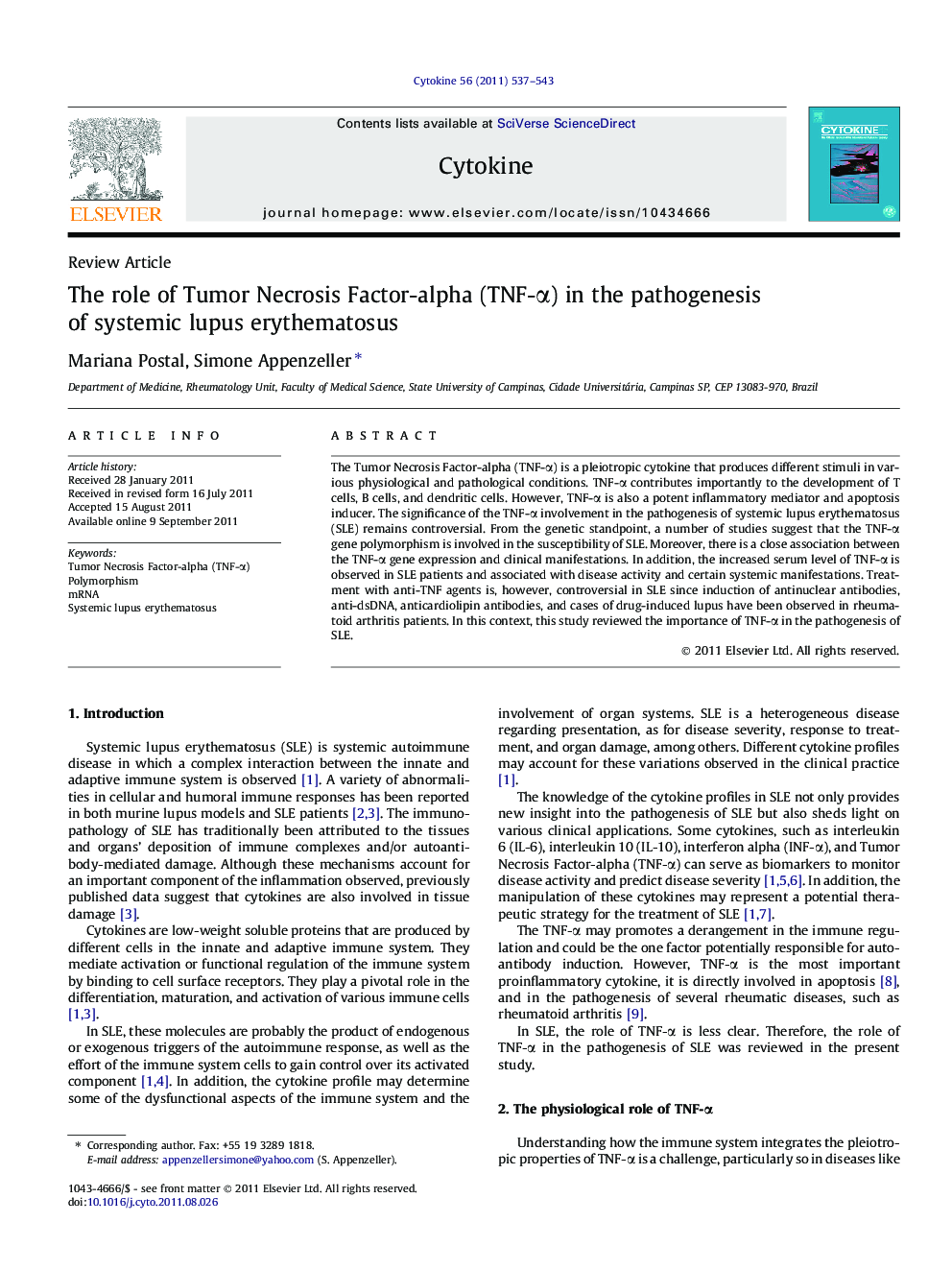| Article ID | Journal | Published Year | Pages | File Type |
|---|---|---|---|---|
| 5898283 | Cytokine | 2011 | 7 Pages |
The Tumor Necrosis Factor-alpha (TNF-α) is a pleiotropic cytokine that produces different stimuli in various physiological and pathological conditions. TNF-α contributes importantly to the development of T cells, B cells, and dendritic cells. However, TNF-α is also a potent inflammatory mediator and apoptosis inducer. The significance of the TNF-α involvement in the pathogenesis of systemic lupus erythematosus (SLE) remains controversial. From the genetic standpoint, a number of studies suggest that the TNF-α gene polymorphism is involved in the susceptibility of SLE. Moreover, there is a close association between the TNF-α gene expression and clinical manifestations. In addition, the increased serum level of TNF-α is observed in SLE patients and associated with disease activity and certain systemic manifestations. Treatment with anti-TNF agents is, however, controversial in SLE since induction of antinuclear antibodies, anti-dsDNA, anticardiolipin antibodies, and cases of drug-induced lupus have been observed in rheumatoid arthritis patients. In this context, this study reviewed the importance of TNF-α in the pathogenesis of SLE.
⺠TNF-α has both immunoregulatory and a proinflammatory function on a variety of cells of the innate and adaptive immune system. ⺠TNF-α level have been associated with disease activity in SLE and certain clinical features such as nephritis. ⺠Genetic studies suggest that the TNF-α gene polymorphism is involved in the susceptibility of SLE. ⺠However the role of TNF-α in SLE is still controversial.
